
Koror Town: The Heartbeat of Palau's Paradise
Koror Town, the bustling epicenter of Palau, is a blend of natural beauty and cultural richness. This charming town serves as the gateway to a world of stunning marine life, lush landscapes, and age-old traditions. As you stroll through its streets, you'll encounter a mix of modern amenities and traditional Palauan structures, giving you a sense of the town's unique character. Dive into the crystal-clear waters surrounding Koror, where vibrant coral reefs teem with diverse marine species. The Rock Islands, a UNESCO World Heritage site, are just a short boat ride away, offering unparalleled opportunities for snorkeling, diving, and kayaking. On land, the Belau National Museum provides fascinating insights into Palau's history and culture, while local craft markets showcase intricate handicrafts that make perfect souvenirs. Food lovers will delight in Koror's culinary scene, which features a mix of local and international flavors. Don't miss out on trying traditional Palauan dishes such as taro, coconut rice, and fresh seafood. The town's warm and welcoming atmosphere is enhanced by the friendly locals, who are always eager to share their stories and recommendations. Whether you're seeking adventure or relaxation, Koror Town offers an unforgettable experience in the heart of the Pacific.
Local tips in Koror Town
- Visit the local markets early in the morning for the freshest produce and unique handicrafts.
- Bring reef-safe sunscreen to protect Palau's delicate coral reefs when snorkeling or diving.
- Respect local customs and dress modestly when visiting cultural sites.
- Try the local delicacy, 'tama' (deep-fried donuts), from street vendors for an authentic taste of Palau.
- Hire a local guide for a more in-depth understanding of the Rock Islands and their history.
Koror Town: The Heartbeat of Palau's Paradise
Koror Town, the bustling epicenter of Palau, is a blend of natural beauty and cultural richness. This charming town serves as the gateway to a world of stunning marine life, lush landscapes, and age-old traditions. As you stroll through its streets, you'll encounter a mix of modern amenities and traditional Palauan structures, giving you a sense of the town's unique character. Dive into the crystal-clear waters surrounding Koror, where vibrant coral reefs teem with diverse marine species. The Rock Islands, a UNESCO World Heritage site, are just a short boat ride away, offering unparalleled opportunities for snorkeling, diving, and kayaking. On land, the Belau National Museum provides fascinating insights into Palau's history and culture, while local craft markets showcase intricate handicrafts that make perfect souvenirs. Food lovers will delight in Koror's culinary scene, which features a mix of local and international flavors. Don't miss out on trying traditional Palauan dishes such as taro, coconut rice, and fresh seafood. The town's warm and welcoming atmosphere is enhanced by the friendly locals, who are always eager to share their stories and recommendations. Whether you're seeking adventure or relaxation, Koror Town offers an unforgettable experience in the heart of the Pacific.
When is the best time to go to Koror Town?
Iconic landmarks you can’t miss
Palau Royal Resort
Experience unparalleled luxury and breathtaking views at Palau Royal Resort, the perfect escape in the heart of Palau's stunning natural beauty.

Palau Pacific Resort
Experience luxury, adventure, and culture at Palau Pacific Resort, your ultimate paradise in the heart of Palau's stunning landscape.

Drop Off Bar and Grill
Experience the delightful fusion of local and international cuisine at Drop Off Bar and Grill in Koror, Palau - a must-visit for every traveler.
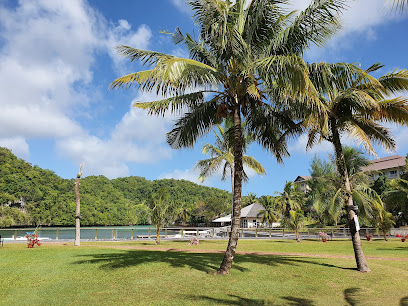
Palau Hotel
Experience the perfect blend of comfort and local flavor at Palau Hotel, your gateway to exploring the beauty of Palau.
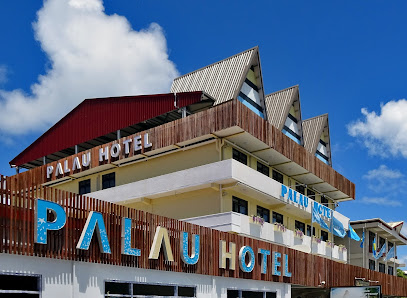
Palasia Hotel Palau
Discover unparalleled luxury and breathtaking views at Palasia Hotel Palau, the ultimate retreat for travelers embracing the beauty of Palau.
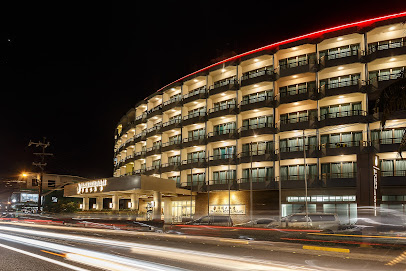
Elilai Seaside Dining
Experience the exquisite flavors of Palau at Elilai Seaside Dining, where fine cuisine meets stunning ocean views in a serene atmosphere.
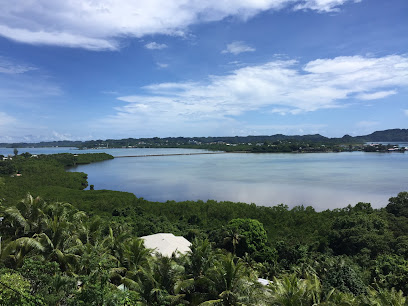
L'Amarena Gelato Shop (Gelateria Italiana)
Explore the delightful flavors of Italy at L'Amarena Gelato Shop in Airai, Palau, where creamy gelato and enticing desserts await every visitor.
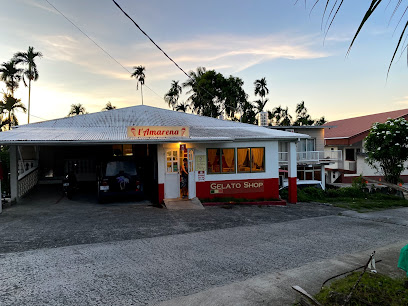
Palau International Airport
Discover Palau's stunning landscapes and rich marine life starting from the welcoming Palau International Airport, your gateway to paradise.
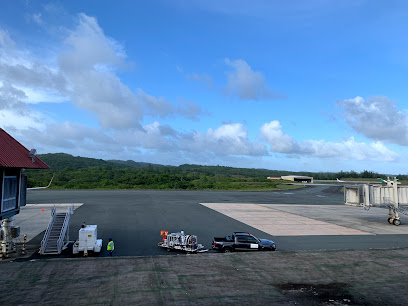
Milky Way
Discover the breathtaking beauty and vibrant marine life at the Milky Way, a premier tourist attraction in Koror, Palau, perfect for all adventure seekers.
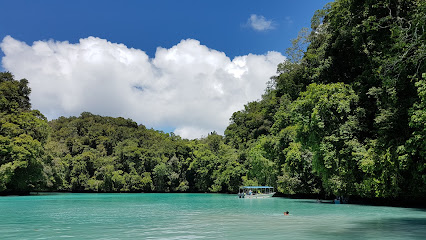
COVE Resort Palau
Discover the stunning COVE Resort Palau, a luxurious beachfront paradise in Koror offering adventure and relaxation in a tropical setting.
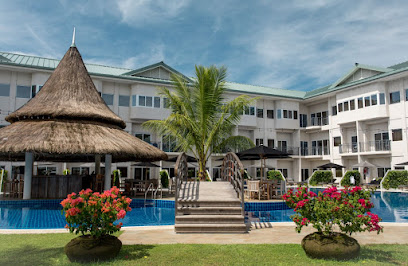
Belau National Museum
Explore Palau's cultural heritage at the Belau National Museum, where history meets tradition in a captivating setting.
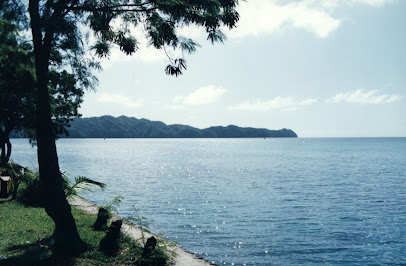
Sam's Tours Palau
Experience the thrill of diving in Palau’s crystal-clear waters with Sam's Tours, your premier dive shop and tour operator in Koror.
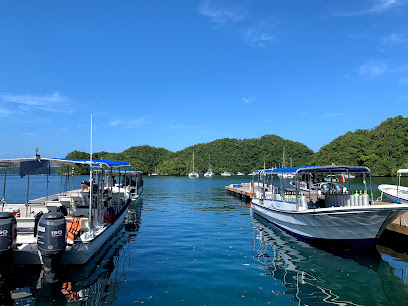
Fish 'n Fins Palau
Discover the underwater paradise of Palau with Fish 'n Fins, your ultimate scuba diving adventure for unforgettable experiences.
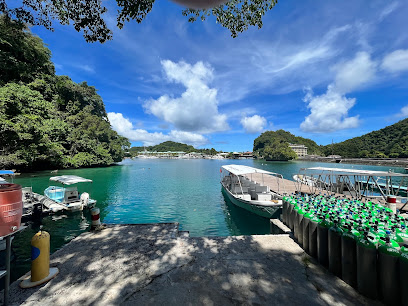
Long Island Park
Explore Long Island Park in Koror, Palau – a serene natural retreat offering stunning views, lush landscapes, and a peaceful atmosphere for every traveler.
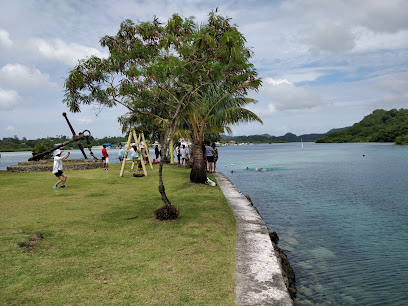
The Canoe House
Discover the lively atmosphere and diverse menu at The Canoe House, a must-visit dining experience in the heart of Palau.
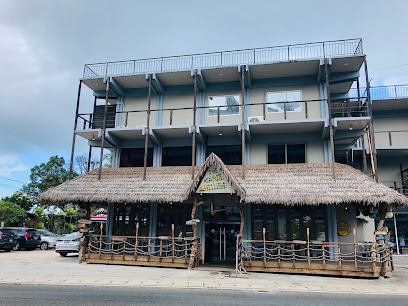
Unmissable attractions to see
Milky Way
Experience the breathtaking beauty of the Milky Way in Koror, Palau, where turquoise waters and vibrant marine life create a paradise for nature lovers.
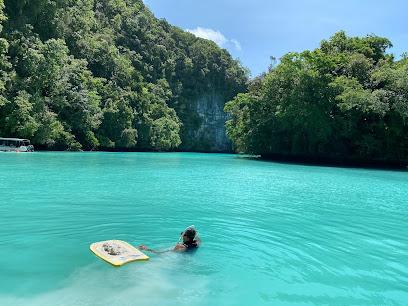
Belau National Museum
Explore the cultural heart of Palau at the Belau National Museum, where history, art, and tradition converge in a captivating experience.
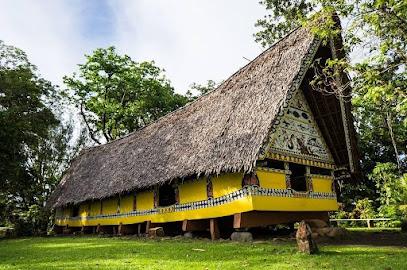
Sam's Tours Palau
Explore the underwater wonders of Palau with Sam's Tours, your premier dive shop and tour operator, offering unforgettable experiences and local flavors.
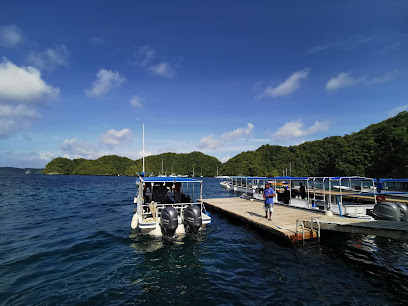
Ngardmau Waterfalls
Experience the breathtaking Ngardmau Waterfalls in Ngiwal, Palau, a serene natural paradise perfect for adventure seekers and nature lovers alike.
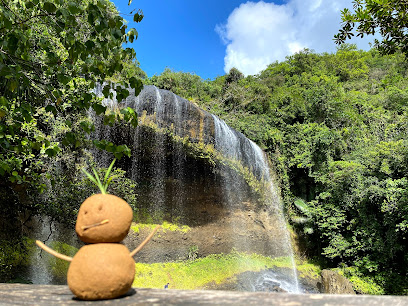
Fish 'n Fins Palau
Discover the underwater wonders of Palau with Fish 'n Fins, your premier scuba tour agency for unforgettable marine adventures.
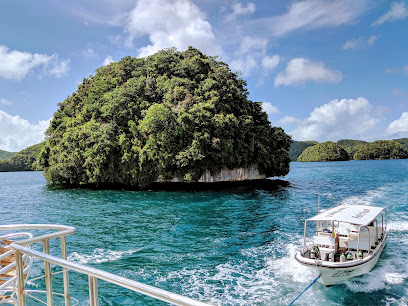
Jellyfish Lake
Explore Jellyfish Lake in Koror, Palau, where you can swim with harmless jellyfish in a stunning natural setting surrounded by breathtaking scenery.
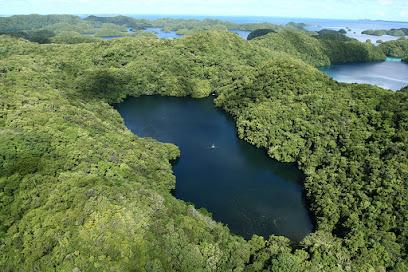
Japan-Palau Friendship Bridge
Explore the enchanting Japan-Palau Friendship Bridge, where stunning landscapes meet a rich cultural heritage in Palau.
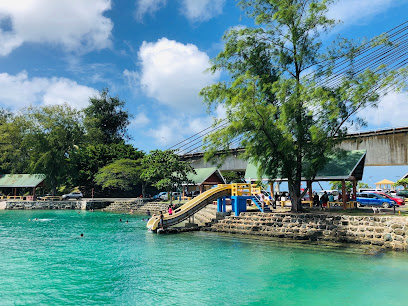
Island Paradise Resort Club
Experience the beauty of Palau at Island Paradise Resort Club, where relaxation meets adventure in a breathtaking tropical setting.
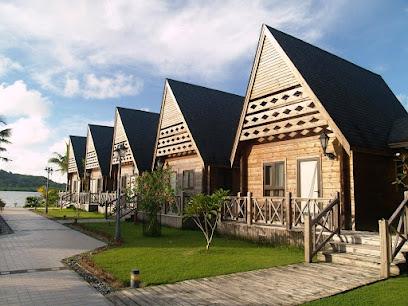
Dolphins Pacific
Discover the magic of marine life at Dolphins Pacific in Palau, where unforgettable dolphin encounters await in a stunning oceanic paradise.
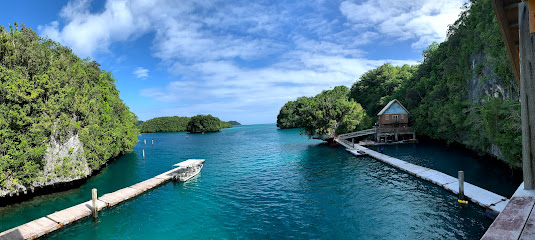
German Channel
Explore the breathtaking German Channel in Palau, a diver's paradise with vibrant coral reefs and diverse marine life in crystal-clear waters.
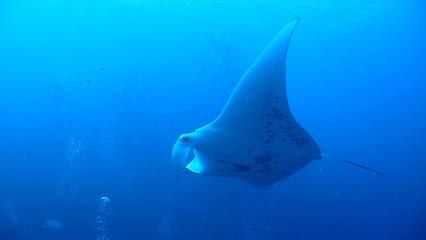
Etpison Museum
Explore the rich cultural heritage of Palau at Etpison Museum, showcasing traditional artifacts and the history of the islands.
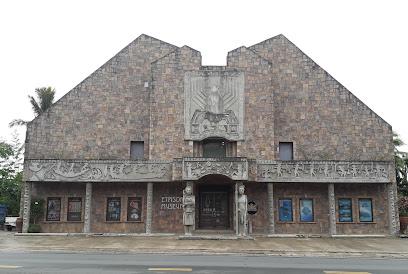
Ngermeaus Island Park
Explore the natural beauty of Ngermeaus Island Park in Palau, a serene escape offering stunning landscapes and unforgettable outdoor adventures.
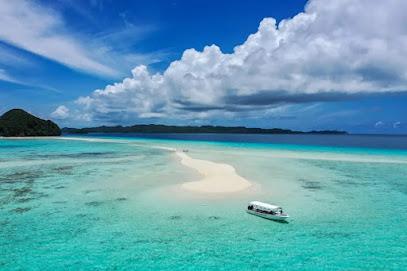
Neco Marine Palau
Explore the underwater wonders of Palau with Neco Marine, the top dive shop and tour agency in Koror, offering unforgettable diving, fishing, and sightseeing adventures.
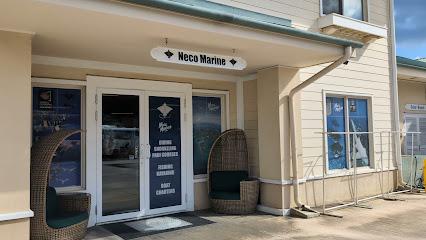
Neco Marine Palau
Discover the vibrant marine life and breathtaking adventures with Neco Marine Palau, your premier diving and tour destination in Koror.
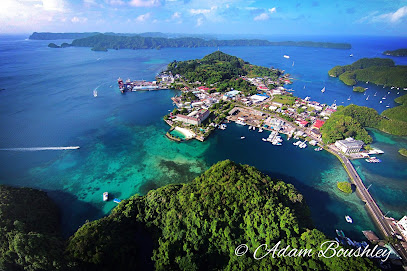
Badrulchau Stone Monoliths
Discover the ancient Badrulchau Stone Monoliths in Ngarchelong, Palau, a remarkable testament to the island's historical and cultural heritage.
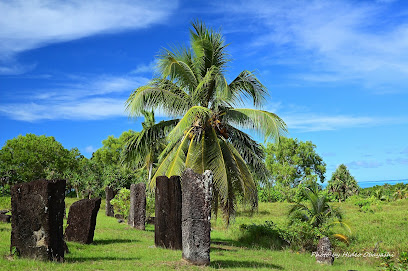
Essential places to dine
Drop Off Bar and Grill
Discover exquisite local cuisine with breathtaking views at Drop Off Bar and Grill in Koror, Palau - A culinary paradise awaits!
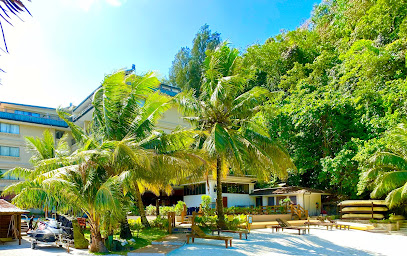
Palau Hotel
Discover culinary delights and serene accommodations at Palau Hotel in Koror – your perfect gateway to exploring the beauty of Palau.
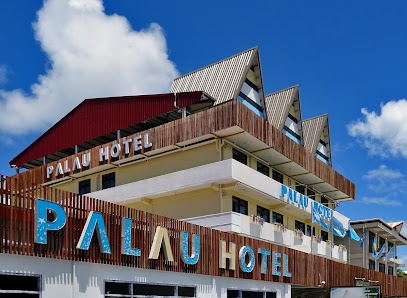
Palasia Hotel Palau
Discover unparalleled luxury at Palasia Hotel Palau – your gateway to adventure in the heart of Koror.
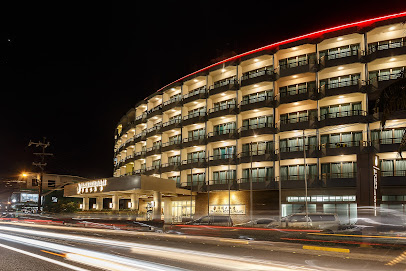
The Taj
Experience the rich flavors of India at The Taj in Koror – an essential stop for food lovers visiting Palau.
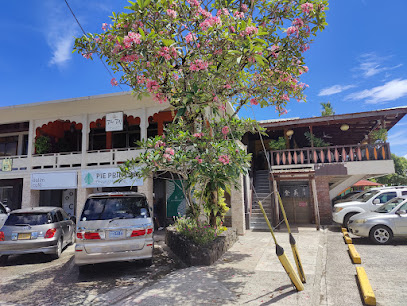
Elilai Seaside Dining
Discover exceptional fine dining at Elilai Seaside Dining in Koror, where stunning ocean views meet exquisite local cuisine.
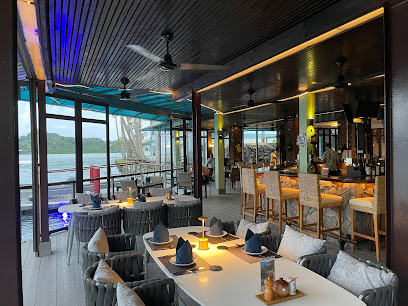
Tori Tori
Experience authentic Japanese cuisine at Tori Tori in Koror, Palau—where every dish tells a story of flavor and tradition.
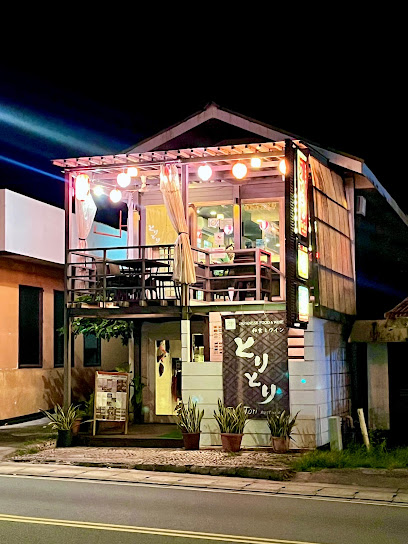
The Canoe House
Discover culinary bliss at The Canoe House in Koror, Palau—where local flavors meet international cuisine amidst stunning tropical views.
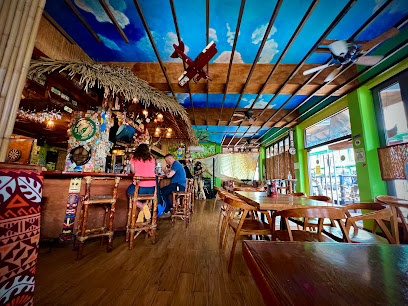
Rock Island Cafe
Discover delicious local cuisine and international flavors at Rock Island Cafe in Koror, Palau – a must-visit dining destination.
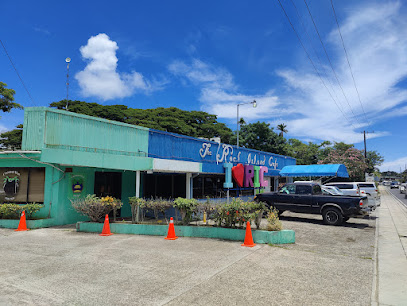
Coffee Berry
Discover the essence of Palauan cuisine at Coffee Berry - where local flavors meet cozy café vibes in the heart of Koror.
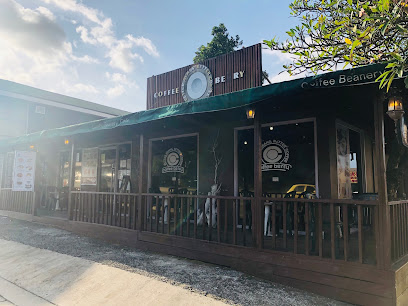
Palm Bay Bistro
Experience the best of Pan Asian cuisine at Palm Bay Bistro in Malakal – where flavor meets local charm.
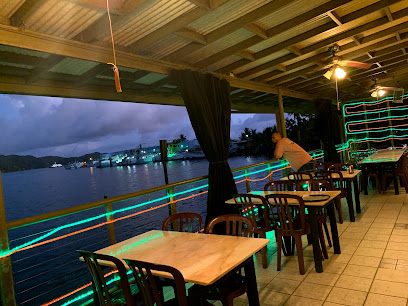
Suriyothai
Savor authentic Thai dishes in Koror at Suriyothai - where vibrant flavors meet warm hospitality.
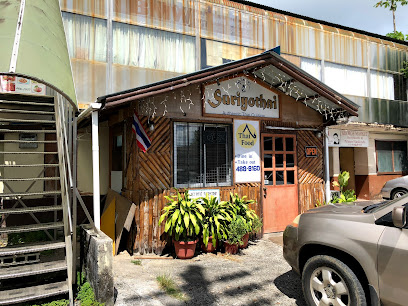
Carp Restaurant
Experience authentic Palauan cuisine at Carp Restaurant in Koror - a culinary haven for food lovers and travelers alike.
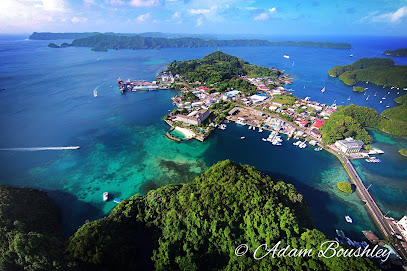
7 Eat Restaurant
Discover exceptional seafood dining at 7 Eat Restaurant in Koror, Palau - where fresh flavors meet breathtaking views.
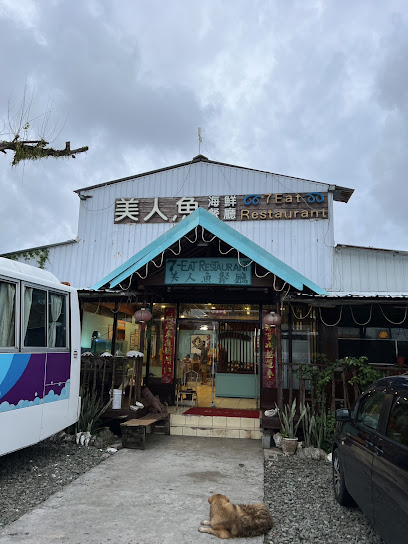
Palau Umi Korean and Japanese Cuisine
Experience exquisite Korean and Japanese cuisine at Palau Umi, where every meal is a celebration of authentic flavors.
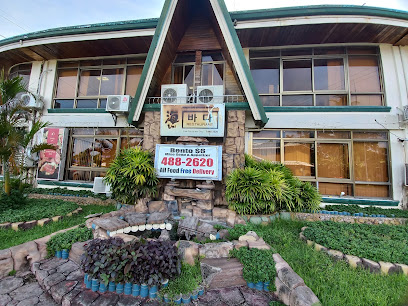
Okemii Deli & Internet Cafe
Discover Okemii Deli & Internet Cafe in Koror - where delightful flavors meet connectivity amidst the beauty of Palau.
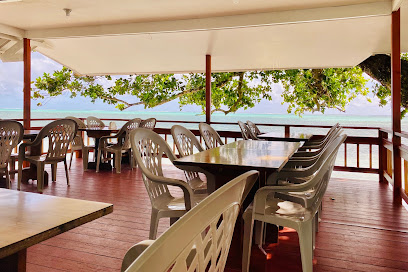
Markets, malls and hidden boutiques
Sam's Tours Palau
Discover the underwater wonders of Palau with Sam's Tours, your go-to destination for diving, snorkeling, and unforgettable ocean adventures.
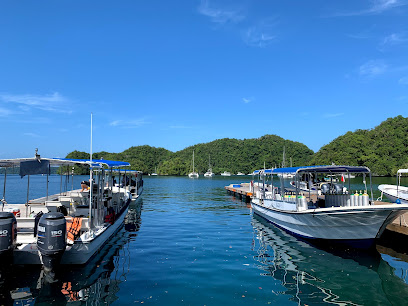
Fish 'n Fins Palau
Explore the vibrant underwater world of Palau with Fish 'n Fins, your ultimate scuba diving and adventure sports destination in Koror.
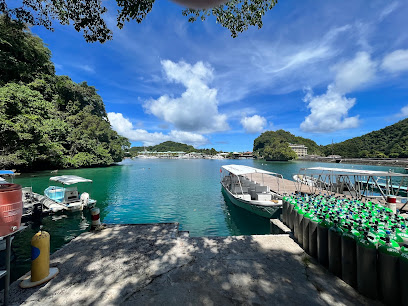
WCTC Shopping Center
Explore the vibrant WCTC Shopping Center in Palau, offering a mix of shopping, dining, and entertainment for an unforgettable experience.
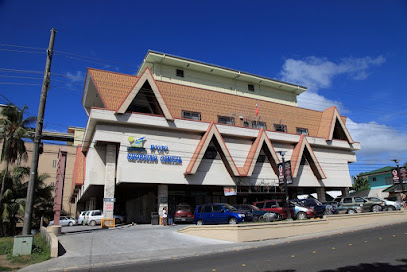
The Canoe House
Experience the vibrant flavors of Palau at The Canoe House, a lively restaurant and bar with delicious food, live music, and a welcoming atmosphere.
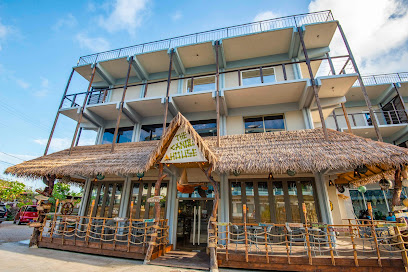
Palau Dive Adventures
Discover the underwater wonders of Palau with expert-guided dives and unparalleled marine adventures at Palau Dive Adventures.
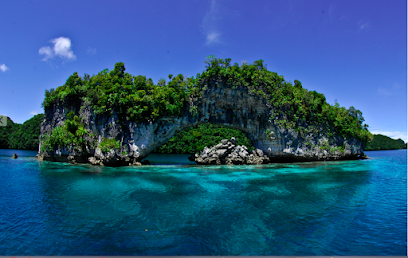
Kumangai Bakery and Emaimelei Restaurant
Discover the essence of Palauan cuisine and delightful baked goods at Kumangai Bakery and Emaimelei Restaurant in Koror.
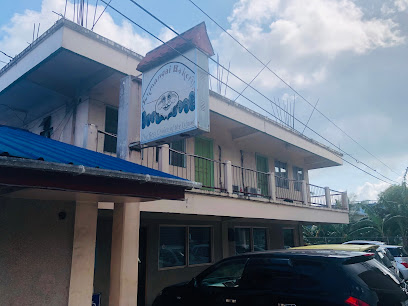
Surangel and Sons Co. - Koror
Discover the vibrant shopping experience at Surangel and Sons Co. in Koror, offering local crafts, international brands, and delicious local cuisine.
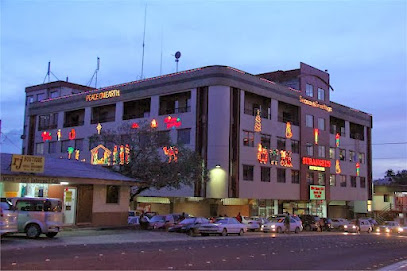
PALAU ESCAPE
Discover unforgettable diving experiences and local artistry at Palau Escape in Koror, Palau, where adventure meets creativity.
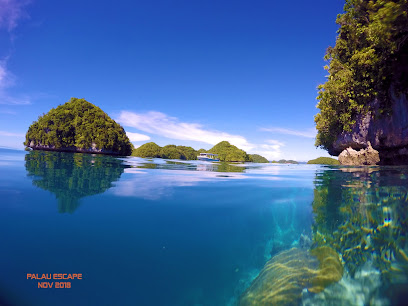
Palau Aquarium
Explore the vibrant marine life of Palau at the stunning Palau Aquarium, a must-visit attraction for ocean enthusiasts and families.
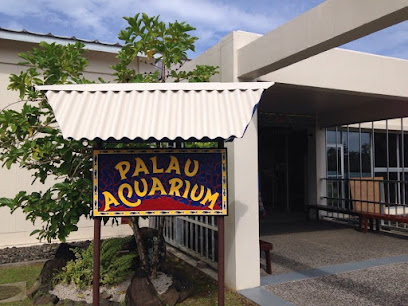
Rur Gift Shop & Cafe
Explore Rur Gift Shop & Cafe in Koror for unique souvenirs and delicious local treats amidst the beauty of Palauan culture.
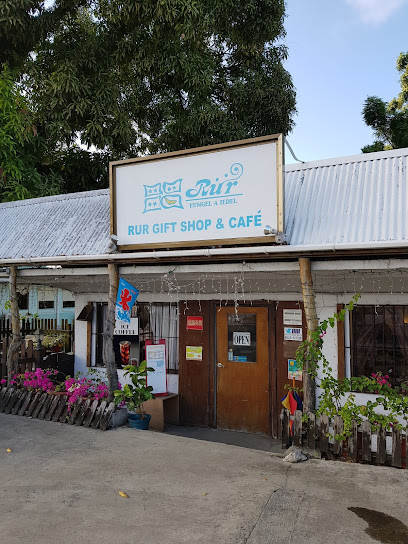
Bubble Tea Shop
Sip and savor the finest bubble tea in Koror, where vibrant flavors and chewy pearls come together for a refreshing experience.
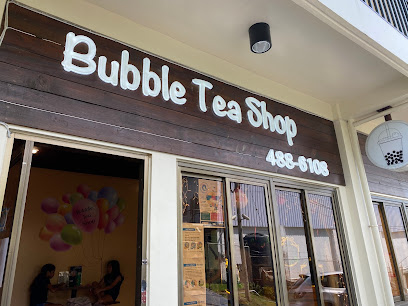
Payless Market
Explore the essence of Palau at Payless Market, where local flavors meet vibrant shopping in Koror.
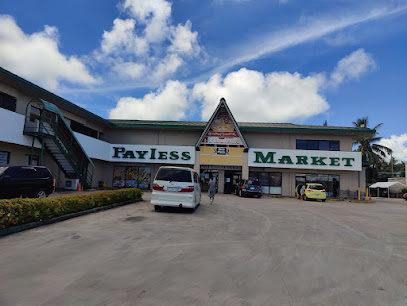
West Mini Mart
Experience the essence of Palau at West Mini Mart, your go-to grocery store for local ingredients and flavors in Koror.

Palau 7th Wonder Dive & Tours
Explore the underwater paradise of Palau with expert-led diving, kayaking, and snorkeling tours at Palau 7th Wonder Dive & Tours.
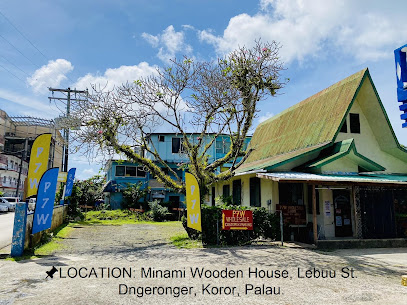
EXILE
Discover unique fashion at EXILE in Koror, Palau, where local culture meets contemporary style in a vibrant boutique experience.
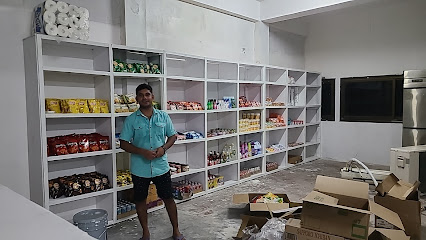
Essential bars & hidden hideouts
Drop Off Bar and Grill
Experience the vibrant taste of Palau at Drop Off Bar and Grill, where fresh ingredients meet a laid-back island vibe in Koror.
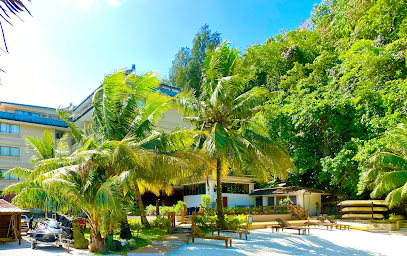
The Taj
Experience the rich flavors of India at The Taj, Koror's premier destination for authentic Indian cuisine and warm hospitality.
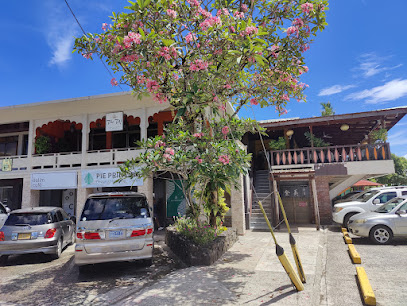
The Canoe House
Experience the vibrant flavors and lively atmosphere of The Canoe House, Koror's favorite bar and restaurant for delicious local and international cuisine.
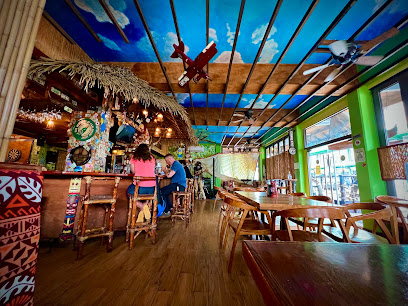
Rock Island Cafe
Experience the rich culinary heritage of Palau at Rock Island Cafe, where local flavors meet international cuisine in a vibrant setting.
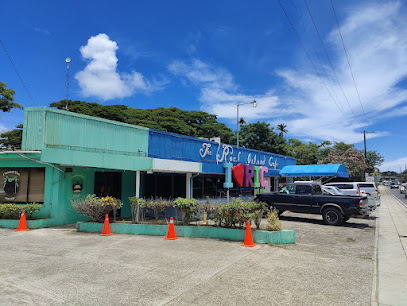
Palm Bay Bistro
Experience the vibrant flavors of Asia at Palm Bay Bistro, a culinary gem in the heart of Palau, where every meal is a delightful journey.
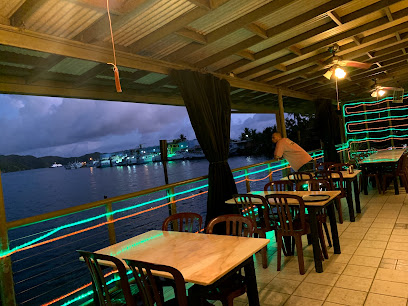
Carp Restaurant
Explore the vibrant flavors of Palau at Carp Restaurant, where local ingredients meet culinary creativity in a stunning setting.
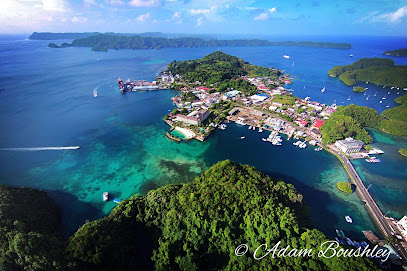
Red Rooster Cafe
Experience the best of local and international cuisine at Red Rooster Cafe in Koror, Palau, where delicious meals meet stunning views.
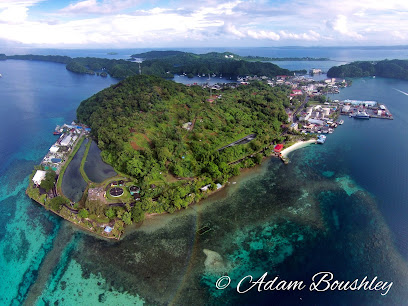
Krämer’s Bar and Restaurant
Savor the flavors of Palau at Krämer’s Bar and Restaurant, where culinary excellence meets local hospitality in a vibrant setting.
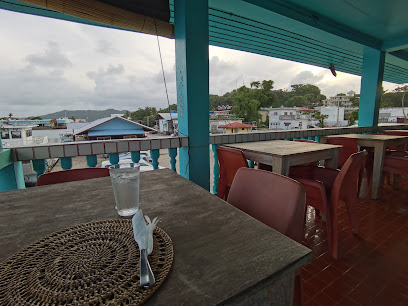
Riptide Beach Bar & Grill
Experience the vibrant flavors of Palau at Riptide Beach Bar & Grill, where stunning views and delicious dishes await every visitor.
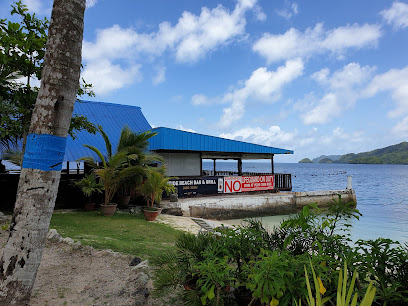
Barracuda Restaurant
Experience authentic Palauan flavors at Barracuda Restaurant in Koror, where fresh seafood meets stunning ocean views.
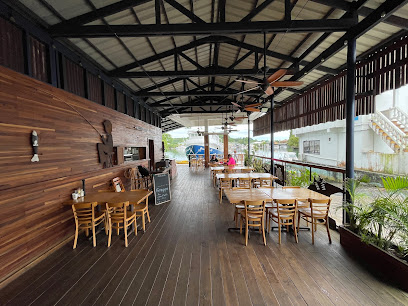
Hungry Marlin Restaurant & Bar at COVE Resort Palau
Discover the culinary paradise at Hungry Marlin Restaurant & Bar, where every meal offers stunning ocean views and fresh, delicious cuisine in Palau.
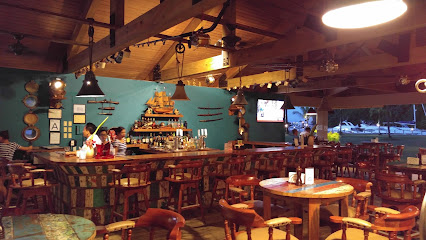
The Salad Bar
Discover the freshest health food and smoothies in Koror, Palau, at The Salad Bar, where vibrant flavors meet nutritious ingredients.
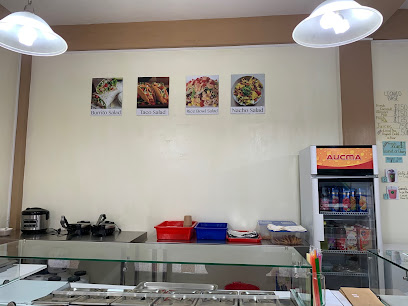
Executive Lounge
Experience the finest dining at Executive Lounge in Koror, Palau, where exquisite flavors meet a luxurious atmosphere.
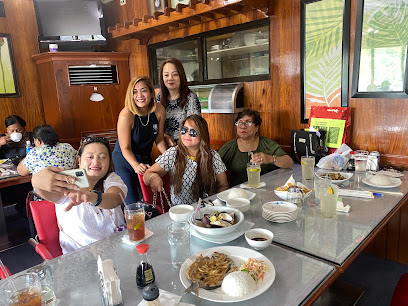
Bottom Time Bar and Grill
Savor delicious local and international cuisine at Bottom Time Bar and Grill in Koror, Palau, where stunning views meet vibrant flavors.
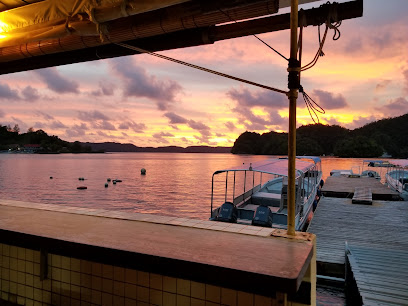
Local Phrases
-
- HelloAlii
[ah-lee] - GoodbyeKo mechar
[koh meh-char] - YesOmelech
[oh-meh-lech] - NoCheldecheduch
[chel-deh-cheh-dook] - Please/You're welcomeChedam/Meiakl
[cheh-dam/may-ah-kel] - Thank youOlengull
[oh-leng-ool] - Excuse me/SorryKmal mesaul
[kem-mal meh-sow-ool] - How are you?Kmal meral diak?
[kem-mal meh-ral dyak?] - Fine. And you?Diak. Ak kmal meral di?
[dyak. ahk kem-mal meh-ral dee?] - Do you speak English?Ungil tutau ra rechad er a Belau?
[oong-geel too-tow ra reh-chad er ah bel-ow?] - I don't understandA di meral diak
[ah dee meh-ral dyak]
- HelloAlii
-
- I'd like to see the menu, pleaseA ruchad e kmal melai er a menu
[ah roo-chad eh kem-mal meh-lai er ah meh-noo] - I don't eat meatA di meral melekoi er a rechad
[ah dee meh-ral meh-leh-koy er ah reh-chad] - Cheers!Chimol beluu!
[chee-mol beh-loo] - I would like to pay, pleaseA ruchad e kmal melim a rengud
[ah roo-chad eh kem-mal meh-leem ah rehng-ood]
- I'd like to see the menu, pleaseA ruchad e kmal melai er a menu
-
- Help!Ungil tutau!
[oong-geel too-tow] - Go away!Meral sebechel
[meh-ral seb-eh-chel] - Call the Police!Ungil tutau ra beluu
[oong-geel too-tow ra beh-loo] - Call a doctor!Ungil tutau ra chad er a doktor
[oong-geel too-tow ra chad er ah dok-tor] - I'm lostA di meral diluches
[ah dee meh-ral dee-loo-chess] - I'm illA di meral bekesii
[ah dee meh-ral beh-keh-see]
- Help!Ungil tutau!
-
- I'd like to buy...A ruchad e kmal mecherar...
[ah roo-chad eh kem-mal meh-cheh-rahr] - I'm just lookingA di meral mei
[ah dee meh-ral may] - How much is it?Kmal mlo mengeder er kid
[kem-mal mlo men-ged-er er keed] - That's too expensiveA ngar er ngii a klumam
[ah ngar er nghee a kloo-mam] - Can you lower the price?Mla mo diak lekau?
[mah mo dyak leh-kow]
- I'd like to buy...A ruchad e kmal mecherar...
-
- What time is it?Kmal meral kmal bekeu er kid
[kem-mal meh-ral kem-mal beh-kew er keed] - It's one o'clockEr kid a rael a mei
[er keed ah rye-al ah may] - Half past (10)Diu el kiekmal (10)
[dee-oo el keek-mal (10)] - MorningBelau el kiekmal
[beh-lau el keek-mal] - AfternoonBelau el chad
[beh-lau el chad] - EveningBelau el klobak
[beh-lau el kloh-bahk] - YesterdayKmal meral melechet
[kem-mal meh-ral mel-eh-chet] - TodayKmal meral diak
[kem-mal meh-ral dyak] - TomorrowKmal meral ngar er kid
[kem-mal meh-ral ngar er keed] - 1Mei
[may] - 2Dior
[dee-or] - 3Telu
[teh-loo] - 4Epat
[eh-paht] - 5Lima
[lee-mah] - 6Enem
[eh-nem] - 7Kedem
[keh-dem] - 8Delapan
[deh-lah-pahn] - 9Sembilan
[sem-bee-lahn] - 10Sepuluh
[sep-oo-loo]
- What time is it?Kmal meral kmal bekeu er kid
-
- Where's a/the...?Meral kmal kau a/the...?
[meh-ral kem-mal kow a/the...?] - What's the address?Kmal meral kmal bekeu er ngara chad?
[kem-mal meh-ral kem-mal beh-kew er ngah-rah chad?] - Can you show me (on the map)?Meral mo diak lekar er a map?
[meh-ral mo dyak leh-kar er ah map?] - When's the next (bus)?Kmal meral kmal bekeu er ngarngii?
[kem-mal meh-ral kem-mal beh-kew er ngar-nghee?] - A ticket (to ....)Kau er kid (er ....)
[kow er keed (er ....)]
- Where's a/the...?Meral kmal kau a/the...?
History of Koror Town
-
Koror Town, located on the island of Koror in the archipelago of Palau, has a history that stretches back thousands of years. Archaeological evidence suggests that the island has been inhabited since at least 1000 BCE. The early settlers were Austronesian peoples who navigated the open seas using advanced maritime skills. They built intricate stone platforms and terraces, some of which can still be seen today.
-
By the late prehistoric period, Koror had become a significant hub for the Palauan chiefdoms. These chiefdoms were complex social structures with a hierarchical leadership. The chiefs, known as 'rubaks', held both political and spiritual authority. Traditional meeting houses, or 'bai', were constructed elaborately and served as important centers for political and social gatherings.
-
Koror Town first came into contact with Europeans in the 18th century, starting with Spanish explorers. However, it wasn't until the late 19th century that European influence became more pronounced. Germany annexed Palau in 1899, and Koror became a focal point for administration and trade. German colonial policies introduced new crops and infrastructure, but also disrupted traditional ways of life.
-
Following World War I, Japan took control of Palau under a League of Nations mandate. Koror Town was transformed as the Japanese established it as the administrative center for their South Seas Mandate. The town saw significant development, including the construction of schools, hospitals, and other infrastructure. This period also saw an influx of Japanese settlers, which influenced local culture and economy.
-
During World War II, Koror Town and the surrounding islands became strategically important for both Japanese and American forces. The nearby Battle of Peleliu in 1944 was one of the fiercest battles in the Pacific Theater. Although Koror itself was not a battleground, the war brought significant hardship to its residents and led to substantial changes in the town's infrastructure and demographics.
-
After World War II, Palau was placed under the administration of the United States as part of the Trust Territory of the Pacific Islands. Koror Town served as a major administrative center during this period. The U.S. introduced modern education, healthcare, and economic practices, which had lasting impacts on the town's development and modernization.
-
Palau gained full sovereignty in 1994, and Koror Town was designated the provisional capital of the new nation. This era marked a period of rapid modernization and growth. The town has become a vibrant cultural and economic center, blending traditional Palauan customs with contemporary influences. Koror is now a bustling hub for tourism, government, and commerce, attracting visitors from around the world.
-
Despite modernization, Koror Town has maintained a strong commitment to preserving its cultural heritage. Traditional practices, dances, and crafts are actively promoted. Institutions like the Belau National Museum and the Etpison Museum play crucial roles in educating both locals and visitors about Palau's rich history and culture. Conservation efforts are also in place to protect the natural beauty and historical sites of the area.
Koror Town Essentials
-
Koror Town is located on the island of Koror in Palau. The primary gateway to Koror Town is the Roman Tmetuchl International Airport (ROR), situated about 8 kilometers from the town center. Direct flights to Palau are available from several major cities in Asia, including Manila, Taipei, and Tokyo. From the airport, you can take a taxi or arrange for a hotel shuttle service to reach your accommodation in Koror Town.
-
Koror Town is relatively small, and many attractions are within walking distance. Taxis are widely available and can be hailed on the street or booked through your hotel. There is also a public bus system, though it may not be as frequent or extensive as in larger cities. Renting a car is an option for those wanting to explore beyond Koror Town, but be aware that driving is on the right-hand side of the road.
-
The official currency of Palau is the United States Dollar (USD). Credit cards are accepted at most hotels, restaurants, and larger shops, but it is advisable to carry cash for smaller establishments and markets. ATMs are available in Koror Town, but it's a good idea to withdraw sufficient cash upon arrival.
-
Koror Town is generally safe for tourists. However, it is always wise to take standard precautions such as avoiding poorly lit areas at night and keeping an eye on your belongings in crowded places. There are no specific areas in Koror Town known for high crime rates targeting tourists, but it is always best to remain vigilant and aware of your surroundings.
-
In case of emergency, dial 911 for immediate assistance. Koror Town has a police station and medical facilities, including the Belau National Hospital. It is recommended to have travel insurance that covers medical emergencies. Pharmacies in Koror Town can provide over-the-counter medications for minor health issues.
-
Fashion: Do dress modestly, especially when visiting religious or cultural sites. Avoid overly revealing clothing. Religion: Do respect local customs and traditions. Remove your shoes before entering homes and places of worship. Public Transport: Do be polite and courteous to fellow passengers. Don’t eat or drink on public transport. Greetings: Do greet people with a smile and a slight nod. Handshakes are generally acceptable. Eating & Drinking: Do try local cuisine and seafood. Don’t waste food, as it is considered disrespectful.
-
To experience Koror Town like a local, visit the local markets where you can find fresh produce and traditional Palauan crafts. Engage with the locals, who are often friendly and willing to share insights about their culture and history. Don’t miss a visit to the Belau National Museum to learn more about Palauan heritage. For a unique experience, take a boat tour to explore the Rock Islands and Jellyfish Lake.
Trending Landmark in Koror Town
-
Palau Royal Resort
-
Palau Pacific Resort
-
Drop Off Bar and Grill
-
Palau Hotel
-
Palasia Hotel Palau
-
Elilai Seaside Dining
-
L'Amarena Gelato Shop (Gelateria Italiana)
-
Palau International Airport
-
Milky Way
-
COVE Resort Palau
-
Belau National Museum
-
Sam's Tours Palau
-
Fish 'n Fins Palau
-
Long Island Park
-
The Canoe House
Nearby Cities to Koror Town
-
Things To Do in Koror
-
Things To Do in Airai
-
Things To Do in Ngatpang
-
Things To Do in Ngchesar
-
Things To Do in Ngaremlengui
-
Things To Do in Melekeok
-
Things To Do in Ngerulmud
-
Things To Do in Ngardmau
-
Things To Do in Ngaraard
-
Things To Do in Yap
-
Things To Do in Siargao
-
Things To Do in Davao City
-
Things To Do in Cagayan de Oro
-
Things To Do in Camiguin
-
Things To Do in Bohol









